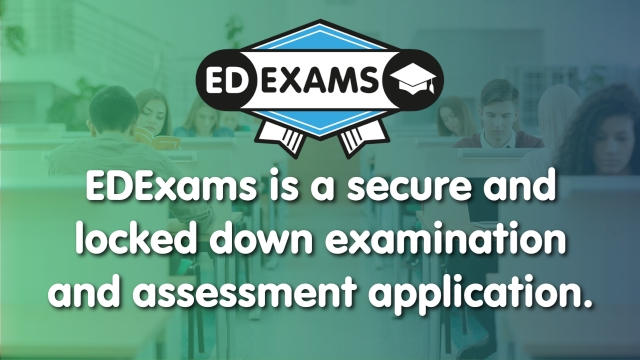It is encouraging to see that online examinations are quickly gaining popularity. They save money, time, and resources while being convenient for everyone involved. In other words, they are a win-win.
While online assessments may not replace traditional exams, they can supplement the efforts that educational institutions and other organisations put into online evaluation. However, even though taking tests online offers some advantages, administrators still face some obstacles they must consider.
The use of technology to carry out examinations can make the process simpler. Still, it also introduces new security risks for the individuals responsible for their administration or monitoring. This is especially true for hackers looking to compromise sensitive data, which could result in identity theft.
Secure Browser
Safe browsing is an essential technique for avoiding fraud. A secure browser will alert the user if a candidate attempts to cheat. It warns the pupil whenever they try to start a new window or tab. If it occurs a fourth time or more, the student risks being disqualified, and the test tab will shut itself.
Authentication & Authorisation based on IP
Every piece of hardware has its unique Internet Protocol (IP) address. As a consequence of this, IP-based login is helpful to the administrator in the process of ensuring robust security. As a consequence of this, the IP address is recorded whenever the academic institution administers the test. Because of these capabilities, the examiner can monitor any potentially malicious behaviour linked with the machine’s IP address that has not been registered. Consequently, nobody can sign up for any of the available devices. Before going on to another system, students who find themselves in a scenario where they must register with various computers must first contact the administrator and explain the circumstance.
Video Proctoring with Live Streaming
The applicant taking the test from a remote location would be under the watchful eye of the remote proctor, who would monitor a live video feed.
Suppose the proctor becomes aware of any questionable behaviours or malpractice indicators via the visuals provided. In that case, they can prompt the candidate immediately. They maintain the authority to halt the online exam at any time.
Creatively remind students of academic integrity policies
Please make a video explaining the rules for the online test, upload it online, and then go through the school’s academic integrity policy and the repercussions specified in the course curriculum. Students may have a psychological effect from seeing and hearing their teacher address academic integrity just before the start of a test. This impact may discourage students who are considering cheating on the exam.
Use varied question types
Instead of only asking multiple-choice or true-false questions on the test, try to mix in some open-ended ones as well. When open-ended questions are asked, it is more difficult for students to give the same response as their friends verbatim. Students would be required to explain their answers using specific details and support narratives outstanding in their understanding of the course materials.
Data encrypted
Candidates in today’s election are quite sophisticated regarding technology, which is why they try to break into the question bank and acquire illegal access to the system. If the information is encrypted, however, dishonest pupils will never be able to get into it using their hacking skills.
The administrator must choose the data encryption option to provide a result that is considered genuine. To phrase this another way, data encryption is an essential security system component. Candidates who are unable to decode the encoded question bank are not able to cheat during examinations. Consequently, educational institutions will have an easier time delivering accurate results.
Ensure malpractice is minimised
When it comes to students trying to cheat on a test, it might be amazing to see how inventive they can be. When taking online quizzes, students may be tempted to cheat in various ways, including using old-school tactics such as jotting little notes on paper, their palms, or even their legs; using numerous applications on their smartphones to interact with their classmates; and more.
The reliability of the test result is directly correlated to the safety of the test. When a new generation comes along, it makes everything more accessible, even our work. Consequently, the educational system uses online examination software to create digital assessments. The administrator is responsible for ensuring the safety of the online examination procedure. When compared to the methods used in regular examinations, securing virtual reviews is far more complex.
EDExams’ online examination service solution
EDExams is a locked-down application that securely delivers examinations with live invigilation and proctoring services.
EDExams can be used by colleges, universities, employers, governing bodies and certification providers to conduct examinations in a professional manner that promises to deliver exceptional serivce.
For a free online demonstration of the platform click here. You can also call our expert team on 01909 384 090 or email mail@edexams.com.











